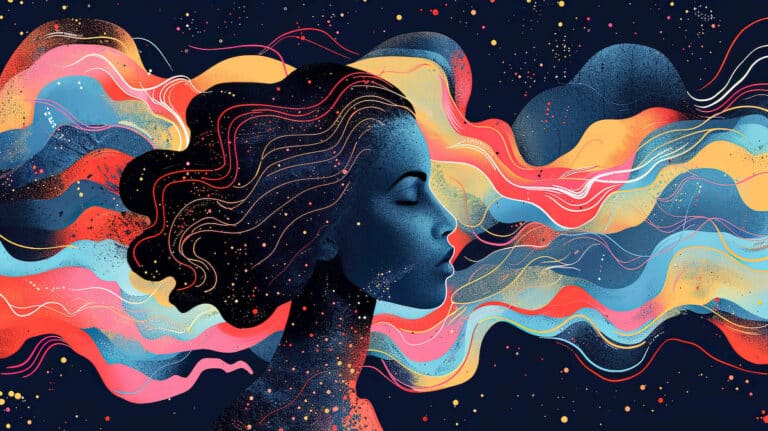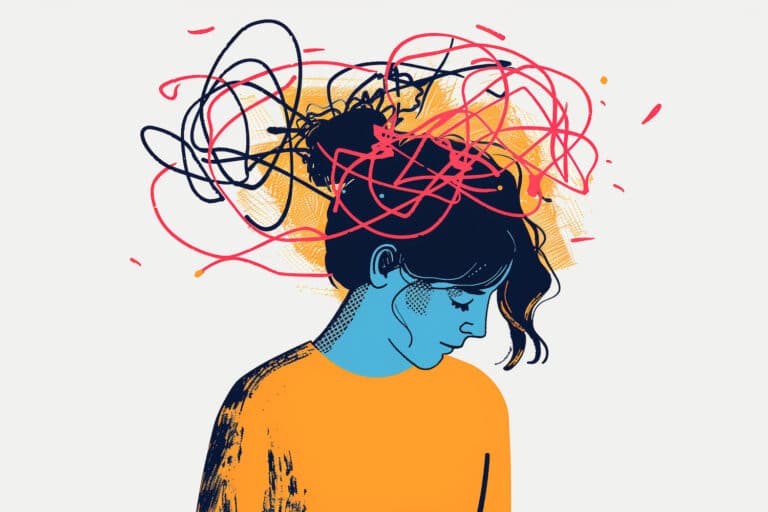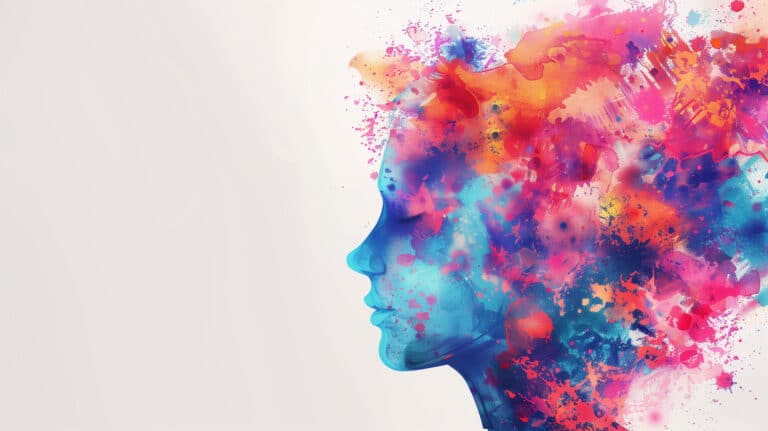Dr. Danielle Hagood, clinical director at Magnolia Creek Treatment Center, believes eating disorders feed off of isolation. As a result, the COVID-19 pandemic has created new challenges for individuals in recovery or struggling with eating disorders. In this episode, Dr. Hagood gives an overview of some of the trends she’s noticed, from increased alcohol use to the pros and cons of social media usage. She also offers advice to people whose loved ones are struggling with an eating disorder.
Dr. Hagood: It is so scary to make that first step. It’s probably going to be the scariest and hardest thing you’ll have to do. But in doing so, when you call, the person on the other end will give you all the support, all the guidance, anything you need to walk you through to where you need to be. Everyone is seen as an individual here. We don’t look at people as kind of cookie cutter approaches.
Host: That’s Dr. Danielle Hagood, clinical director at Magnolia Creek Treatment Center, explaining what someone can expect if they reach out for help when struggling with an eating disorder. My name is Clark and I’m your host of Conversations at Magnolia Creek, a new podcast where we’re covering topics like evidence-based treatment for eating disorders, the importance of whole person healing, and more. Magnolia Creek Treatment Center helps women with eating disorders and co-occurring mental health disorders. It’s also part of the larger Odyssey Behavioral Health Network, which includes 20 locations that are committed to helping individuals reach their optimal levels of health. In this episode, Dr. Hagood discusses the ways in which COVID-19 has impacted individuals with eating disorders. And she also offers advice to anyone who’s considering seeking out treatment for themself or for a loved one. To learn more about Magnolia Creek and Odyssey Behavioral Health Care, visit odysseybehavioralhealth.com. Now let’s get started.
Dr. Hagood: Hello, my name is Dr. Hagood. I am the Clinical Director at Magnolia Creek Treatment Center, and I’ve been here for about 3 years and I have been fortunate enough to be working in the field of eating disorders for a little over 15 years now.
Host: Dr. Hagood, thank you for taking the time. We know you’re very busy, but we really appreciate you sharing a little about your experiences and some of the things that you’ve been seeing most recently. The topic today is actually going to be around COVID-19 and how you’ve seen this disrupt this whole space of what people are going through. This has been an unbelievable set of events that we’ve all been going through, and that has an impact on folks who have either been in recovery or have not yet sought recovery. So, we’ll talk about all that in just a moment. But first, I know you have shared before your general belief, your belief that everyone has the potential for growth and change. And I just want to start with that, because I just want to kind of get an idea of your why. And you say you’ve been doing this for over 15 years. What motivates you? Why have you stayed in this? This has got to be challenging work, right?
Dr. Hagood: Yeah, I do. That’s the belief that everyone does have that potential for growth and change is a belief I have held since I started my career. And it’s just kind of like the cornerstone for me. And I get to see that. I get to see the change in so many women that walk through our doors and that we treat coming in as a shell of a person and walking out full of life and energy and potential and hope. So, it can be challenging to work within this field. But when you see those kinds of outcomes, it really keeps you energized and really keeps you motivated and focused to just kind of keep going.
Host: That’s the complete opposite, light, dark. You use the word shell.
Dr. Hagood: Correct.
Host: And then they leave and they’re full of life. That is a complete– those are totally opposites.
Dr. Hagood: Yeah, I mean, it’s not only that, just to be able to kind of witness and be part of that experience for an individual that comes into treatment. But even years down the road, like I said, I’ve been doing this for a little over 15 years. So, I’ll still get kind of some emails and notes from clients that I worked with years ago who are just loving life, who are getting married, having children, earning degrees, and able to show kind of all the positive changes they’ve made since they committed to their recovery. And it’s just really amazing.
Host: So, for those folks, I’m curious, have you heard from people you’ve had the chance to work with in the past, just with how COVID-19 has been impacting them? Or do you have any ideas or anticipations of how that has been impacting people who’ve already committed to recovery? And then maybe we can talk after that about someone who’s not yet sought recovery, what they might be experiencing?
Dr. Hagood: Sure. Yeah. COVID-19 has really affected folks that are in recovery and folks that haven’t reached out for recovery just yet. It’s been a challenge. So, there’s been that piece of it. But there’s also been a lot of hope and a lot of coming together within the community to try and problem solve and help each other through this. We kind of see both ends of it in the field right now. But it is challenging for folks that are in recovery or struggling in terms of the isolation. We know that addictions and eating disorders, they kind of feed off of isolation, shame, being alone. And so inherently COVID-19 is just a breeding ground for that. It’s making it really difficult for folks to continue to connect with their supports, whether it be outpatient therapists, recovery support groups, sponsors. Although we’re trying to do a lot of virtual meetings and supports and treatments, it’s just not the same as being able to meet with people one on one and to have those connections.
Host: The human interaction.
Dr. Hagood: Absolutely, absolutely. So that’s been a real challenge. But like I said, I think we’ve come together as a community and trying to explore and find creative ways to figure this all out together.
Host: When you use words like isolation, shame, or being alone, I’m curious how social media has maybe impacted this, because it seems like there’s a lot more time we are alone, we’re craving the social interactions. What kind of impact has that had that you’ve seen?
Dr. Hagood: Well, social media, I think, with everything, has the pros and cons to it. And in terms of COVID-19, when you have a lot of downtime and a lot of free time, unfortunately, I think sometimes the go-to is our social media to make us feel like we’re getting connected, even though it’s really a false sense of human connection. And there’s a lot of sites that sort of romanticize eating disorders and folks that have an eating disorder or are struggling sometimes are drawn to those sites and that can just exacerbate symptoms they’re already having. There can be a lot of comparison with those people which, like I said, just can continue and exacerbate the issues that they’re already having. On the flip side, the community is really trying to come together to find creative alternatives. There are some really “pro” Instagrams and Facebooks provided by some really great therapists and dieticians just to help promote recovery, to help connect with folks, even if it’s just through that lens to give them a sounding board for questions and just that connection.
Host: Right. Something else I was curious to ask you about was alcohol use right now in the last year. We are at home more and trying to relax, and that’s a factor. How has that uniquely been an additional factor in all of this, especially with COVID-19?
Dr. Hagood: Yeah, so we definitely have seen an increase in alcohol use in conjunction with folks with a diagnosis of eating disorder. Now, we’ve seen an increase in that in the past years, but particularly now during COVID, it’s increasing even more. And we’re assuming that it’s related to being alone, not having that social connections, the increased just overall anxiety of our community with the pandemic. And some people will turn to substances to help calm themselves, which they are viewing as something that’s soothing but becomes destructive in the long run. We tend to see more negative coping skills rather than trying to implement the positive skills that maybe they’ve learned in the recovery or treatment centers.
Host: If someone has sought recovery and they have tools and they have ways to try to go through this new set of circumstances, but I can’t imagine how hard it’s got to be right now. I’m curious to ask you next, if someone is going through this year, it’s been more challenging than we could have ever imagined. Maybe they realize they’re needing help. Maybe it’s a loved one that sees that they need help. Maybe it’s a combination of both of those. What is that next step? I would imagine there’s a lot of mystery and a lot of anxiety and the unknown of taking the first step to call. Can you walk me through that?
Dr. Hagood: Sure. Yeah. And I just wanted to kind of emphasize what you just stated as we are seeing an increase of loved ones or support members of the family calling because they are seeing what’s going on with their loved one more so during this pandemic than they would otherwise, basically, because we’re kind of all stuck together, whether it’s in the house or wherever we are. And it’s hard with an eating disorder to then keep those behaviors secret, which is what really fuels an eating disorder is that kind of secrecy. And so now it’s hard for them to do that. So loved ones, family members, are really– it’s right in front of them right now. And they’re really seeing really what’s going on. So, we’re noticing family members reaching out to us at a slightly increased rate than in the past. And what I would say to both a family member and someone who is struggling with an eating disorder is, it is so scary to make that first step. It’s probably going to be the scariest and hardest thing you’ll have to do. But in doing so, when you call, the person on the other end will give you all the support, all the guidance, anything you need to walk you through to where you need to be. And whether that’s here at Magnolia Creek or a different facility or a different approach to treatment, we’re going to work with you in a collaborative way. Everyone is seen as an individual here. We don’t look at people as kind of cookie cutter approaches. I can guarantee that the person that’s on the other end is going to be completely invested in you and your recovery.
Host: That is a good point you make with people are now around each other more at home and you can’t hide things. And a loved one, they might be trying to be helpful, but what they actually do might come across as negative. Right? Do you have any examples of that and why it’s so challenging? Because if you don’t know the right thing to say, but you want to say something, can you walk me through that a little bit?
Dr. Hagood: Yeah. And I talk about this a lot because when a family member, a loved one, is watching the person they care about essentially kill themselves, it’s really scary for them. And generally, how would they know how to approach it? The language and the skills aren’t something that naturally come to all of us. A lot of times, how it comes out is through frustration or anger at that person that’s struggling when actually it’s based in and rooted in just a huge sense of fear for that person. But, in coming out as anger, it tends to push that person that’s struggling away. So, just helping family members understand that process and why that’s happening can be really helpful.
Host: So, if they were to call, they begin this process, this journey. I heard you say earlier, this is not cookie cutter. Every person is an individual. But it’s not just going to be them. It’s going to also somehow include their family, right?
Dr. Hagood: 100%, and at Magnolia Creek, our family program is a huge part of our treatment program and whether it’s your family, biological family, or your family that you’ve chosen, like I said, it’s going to be collaborative with you. We’re going to figure out who do you need as a support whenever you’re living your life and in your recovery. And that’s who we want to work with. We do a lot of family education. We do family support groups. We do a family workshop every month. It’s a two-day intensive workshop. We really, really encourage family members and support folks to become part of the process and part of the solution.
Host: One more quick question about the family aspect. If a family member, you were saying, out of love, they’re trying to help, but it can come across as anger. Is there one tip or one bit of advice just for the family to maybe try to rethink the way that they’re talking to someone who they either suspect has an eating disorder or they know they have an eating disorder? Is there anything you could share on that?
Dr. Hagood: What I tell families is just to go into it thinking about what that person is actually thinking, feeling. And so sometimes someone with an eating disorder who’s still in it can come across as maybe stubborn or resistant and that can fuel some of that fear and anger in family members. And I want to tell the family members, that person doesn’t want to be doing what they’re doing right now, that their life is not– they’re not happy. It can be a compulsive behavior. It’s a disorder. It’s not a choice. And I think– and there’s a lot of shame involved in that as well and embarrassment. If you kind of go into it with that lens, it can change how you see the person and then how you’re interacting with them.
Host: That makes sense. I want to ask you, in your own words, how has COVID-19 complicated things with someone who has an eating disorder?
Dr. Hagood: I think with COVID-19, just inherently in this pandemic is this sense of isolation that we’re all feeling. Someone with an eating disorder generally already feels pretty isolated in their life. And so this just compounds that even more. That isolation really is a breeding ground for that shame, embarrassment, the guilt that often comes along with an eating disorder, addiction, and then it’s even more difficult or challenging for that person to seek help. Right now, a lot of the outpatient providers, treatment centers, are doing only virtual treatment. And so that makes it more difficult not to have that one on one experience for people who are needing some type of treatment.
Host: Dr. Hagood, I really appreciate your time and sharing a little about your experiences, and I’m looking forward to continuing the conversation with you soon.
Dr. Hagood: Thank you so much for having me.
Host: Hey, thanks so much for listening to Conversations at Magnolia Creek. Please be sure to follow, rate, and review the show wherever you get your podcasts. If you or someone you love is looking to turn second chances into new beginnings, start your journey at odysseybehavioralhealth.com.



